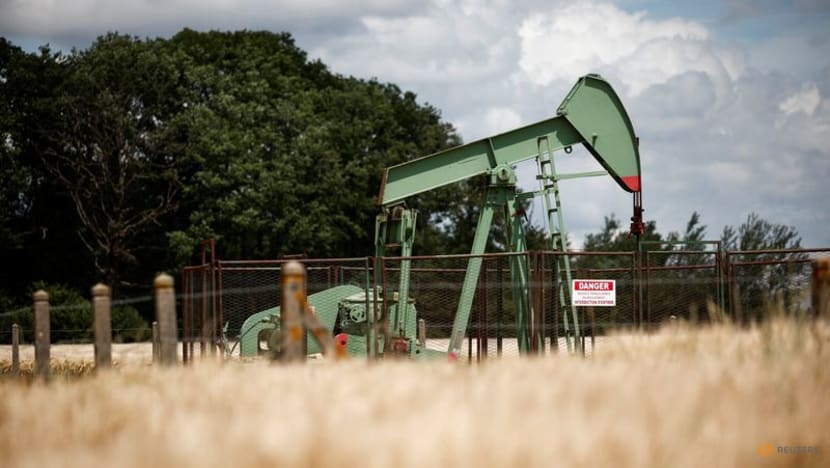Oil prices stage recovery on new Iran sanctions, equities rally

FILE PHOTO: A pumpjack operates at the Vermilion Energy site in Trigueres, France, June 14, 2024. REUTERS/Benoit Tessier/File Photo
NEW YORK :Oil prices rose more than $1 per barrel on Tuesday as new U.S. sanctions against Iran and rising equity markets helped spark a recovery rally from the prior session's steep selloff.
Brent crude futures rose $1.15, or 1.7 per cent, to $67.41 per barrel by 1:58 p.m. EDT (1758 GMT). The U.S. West Texas Intermediate crude contract for May, which expires on Tuesday, was up $1.24, or 2 per cent, at $64.32.
The more actively traded WTI June contract was also up 2 per cent at $64.33.
The United States on Tuesday issued fresh sanctions targeting an Iranian liquefied petroleum gas and crude oil shipping magnate and his corporate network.
Although talks between Washington and Tehran over the latter's nuclear program made progress over the past weekend, failure to reach a deal could weigh heavily on Iran's oil exports amid tightening U.S. sanctions, said John Kilduff, partner at New York-based Again Capital.
"Either some nuclear deal is agreed or the U.S. tries to drive Iran's oil flows to zero, and it's increasingly looking like a zero-flow scenario," Kilduff said.
A surge in equity markets, indicative of higher risk appetite from investors, also aided oil prices, Mizuho analyst Robert Yawger said.
U.S. stocks rose on Tuesday as investors focused on corporate earnings, after President Donald Trump's mounting criticism of Federal Reserve Chair Jerome Powell led to a sharp selloff in the previous session.
Brent and WTI benchmarks fell more than 2 per cent on Monday due to the progress in U.S.-Iran talks and the equities selloff.
Despite Monday's recovery, investors remain concerned that U.S. tariffs could slash global economic activity, which will weigh on oil prices going forward.
The International Monetary Fund on Tuesday slashed its economic outlook for this year, citing U.S. tariffs at 100-year highs and rising trade tensions between Washington and Beijing.
"(U.S. tariffs) risk slowing global trade, disrupting supply chains, and increasing costs across major energy-consuming industries - all of which could significantly dampen oil demand," said Marcus McGregor, head of commodities research for asset management firm Conning.
Meanwhile, Russia's economy ministry cut its forecast for the average price of Brent crude in 2025 by nearly 17 per cent from its projection in September, according to documents seen by Reuters.
U.S. crude oil and gasoline stockpiles were expected to have fallen last week, while distillate inventories are likely to have risen, a preliminary Reuters poll showed on Monday, ahead of weekly reports from the American Petroleum Institute and the Energy Information Administration.













